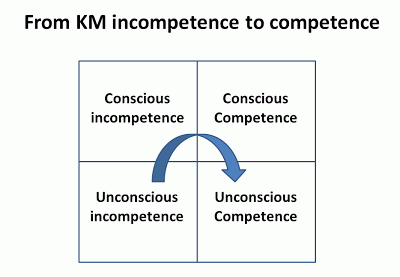Leadership and management in a post-modern world
Some weeks ago, I had to write a few paragraphs on how I would define good leadership and management. The following revised essay is the result of this exercise:
When the 51 founding members of the United Nations convened in San Francisco in 1945, the signed UN Charta marked a clear shift from unilateralism and colonialism to multilateralism. The main basis for this development was the growing consciousness that the existing global challenges can not be faced by one power alone. The distinctiveness of this new international system of collective security was not characterized by one nation claiming leadership but by a peer structure with equal rights and responsibilities. In its own way the UN system thus appears as one of the many faces of the transition process from a modern to a postmodern society.
Why is this important with regard to leadership and management? Because unlike the modern characteristics of enforced rules, clear hierarchies and strict boundaries, the post-modern era is characterized by the inclusion of a growing variety of actors and approaches within fuzzy boundaries and through peer-to-peer organizational structures. And because I believe that leadership and management in context of such a postmodern reality are also different from what the concepts used to be in the modern age.
Leadership in the 21st Century will be more about facilitation than it is about authority. More about connecting the right people than putting single leaders in place. More about working with what people want and what they already know then about telling people what to do. While this is true on a societal level, it also translates into the challenges of leadership within business entities and organizations. Good leadership within an international organization will need to consider the following three aspects:
Leadership is facilitation. Like the UN Secretary General’s role is not to impose concepts and ideas to member states, but rather distill the essence of consensus among the existing ideas and agendas of the member states, leaders within agencies need to work with what (the very much gifted and knowledgeable) people bring, rather than introducing what in their opinion should be done. It is important to note that this does not contradict the pursuit of an organization’s mandate. It does rather enable all members to actually identify with the organization’s mandate, as they can see themselves as part of the process and therefore have a much greater incentive to commit and engage in context of their assignments.
Leadership is trust. Good leadership selects the right people and - more importantly – trusts them after selection. It also trusts the processes which are put in place to organize the work of an organization. Good leadership will let people do the job they were hired for, trusting their professional competencies as well as their moral integrity. The saying that ‘faith moves mountains’ is in particular true when faith is invested in people. The energy mobilized within individuals who experience that they are trusted to do their job well is an indispensable parameter when striving for project success.
Leadership is support. The essence of good leadership has always been this: To provide vision for a common goal and to bring out all the potential of the ones who are led, building an environment so that their commitment, knowledge and capacity can be harnessed to the fullest extent. In this, the leader has not so much a dominating than a supporting role, thus serving the organization and its members to fulfill each of their tasks to the highest degree possible. Power plays or opposition to personal development of staff can have no part in such an environment.
The implications on managers in the 21st century follow the same lines, as we experience that classic institutional hierarchies and control mechanisms are being softened over time. From this perspective, the following three items will be of particular importance for future management practice:
Management needs to be transparent. Communication is the key to successful management processes in particular within large organizations. Management therefore has to understand that being part of the post-modern knowledge society means that people within organizations need to be provided with as much information and knowledge as possible rather than limiting information flows to only what staff needs to know to do their own job.
Management means managing networks. In today’s business and organization processes, no single entity knows all it needs to know on its own. To acknowledge the power of networks means to benefit from the possibilities of connecting to and distilling from a vast pool of resources, management partners, experts, solution providers and practitioners. Networks are more than the sum of their parts and by encouraging and maintaining networks, both inside and outside the organization, management will strengthen competencies and efficiency on every level of the organization.
Management can open up for self-organization. The biggest challenge of management today will be to overcome the traditional urge for control, micromanagement and confidentiality. In a networked knowledge society, business processes need to be allowed to become an open space for shared opinions, solutions and responsibilities. Trusting the capability of individuals to act, decide and carry responsibility can open the way to organizational processes which involve a wider range of people. This in effect bears the chance for much more adaptive, creative and successful solutions and ways to do business.
The societal change towards post-modern thinking, knowledge economies and a networked world is happening. We need leaders and managers who understand this change and its implications for the organizations they are serving.
When the 51 founding members of the United Nations convened in San Francisco in 1945, the signed UN Charta marked a clear shift from unilateralism and colonialism to multilateralism. The main basis for this development was the growing consciousness that the existing global challenges can not be faced by one power alone. The distinctiveness of this new international system of collective security was not characterized by one nation claiming leadership but by a peer structure with equal rights and responsibilities. In its own way the UN system thus appears as one of the many faces of the transition process from a modern to a postmodern society.
Why is this important with regard to leadership and management? Because unlike the modern characteristics of enforced rules, clear hierarchies and strict boundaries, the post-modern era is characterized by the inclusion of a growing variety of actors and approaches within fuzzy boundaries and through peer-to-peer organizational structures. And because I believe that leadership and management in context of such a postmodern reality are also different from what the concepts used to be in the modern age.
Leadership in the 21st Century will be more about facilitation than it is about authority. More about connecting the right people than putting single leaders in place. More about working with what people want and what they already know then about telling people what to do. While this is true on a societal level, it also translates into the challenges of leadership within business entities and organizations. Good leadership within an international organization will need to consider the following three aspects:
Leadership is facilitation. Like the UN Secretary General’s role is not to impose concepts and ideas to member states, but rather distill the essence of consensus among the existing ideas and agendas of the member states, leaders within agencies need to work with what (the very much gifted and knowledgeable) people bring, rather than introducing what in their opinion should be done. It is important to note that this does not contradict the pursuit of an organization’s mandate. It does rather enable all members to actually identify with the organization’s mandate, as they can see themselves as part of the process and therefore have a much greater incentive to commit and engage in context of their assignments.
Leadership is trust. Good leadership selects the right people and - more importantly – trusts them after selection. It also trusts the processes which are put in place to organize the work of an organization. Good leadership will let people do the job they were hired for, trusting their professional competencies as well as their moral integrity. The saying that ‘faith moves mountains’ is in particular true when faith is invested in people. The energy mobilized within individuals who experience that they are trusted to do their job well is an indispensable parameter when striving for project success.
Leadership is support. The essence of good leadership has always been this: To provide vision for a common goal and to bring out all the potential of the ones who are led, building an environment so that their commitment, knowledge and capacity can be harnessed to the fullest extent. In this, the leader has not so much a dominating than a supporting role, thus serving the organization and its members to fulfill each of their tasks to the highest degree possible. Power plays or opposition to personal development of staff can have no part in such an environment.
The implications on managers in the 21st century follow the same lines, as we experience that classic institutional hierarchies and control mechanisms are being softened over time. From this perspective, the following three items will be of particular importance for future management practice:
Management needs to be transparent. Communication is the key to successful management processes in particular within large organizations. Management therefore has to understand that being part of the post-modern knowledge society means that people within organizations need to be provided with as much information and knowledge as possible rather than limiting information flows to only what staff needs to know to do their own job.
Management means managing networks. In today’s business and organization processes, no single entity knows all it needs to know on its own. To acknowledge the power of networks means to benefit from the possibilities of connecting to and distilling from a vast pool of resources, management partners, experts, solution providers and practitioners. Networks are more than the sum of their parts and by encouraging and maintaining networks, both inside and outside the organization, management will strengthen competencies and efficiency on every level of the organization.
Management can open up for self-organization. The biggest challenge of management today will be to overcome the traditional urge for control, micromanagement and confidentiality. In a networked knowledge society, business processes need to be allowed to become an open space for shared opinions, solutions and responsibilities. Trusting the capability of individuals to act, decide and carry responsibility can open the way to organizational processes which involve a wider range of people. This in effect bears the chance for much more adaptive, creative and successful solutions and ways to do business.
The societal change towards post-modern thinking, knowledge economies and a networked world is happening. We need leaders and managers who understand this change and its implications for the organizations they are serving.



Comments
In the meantime, can you suggest any sources you used when writing this, apart from obviously the UN papers?
Kind regards,